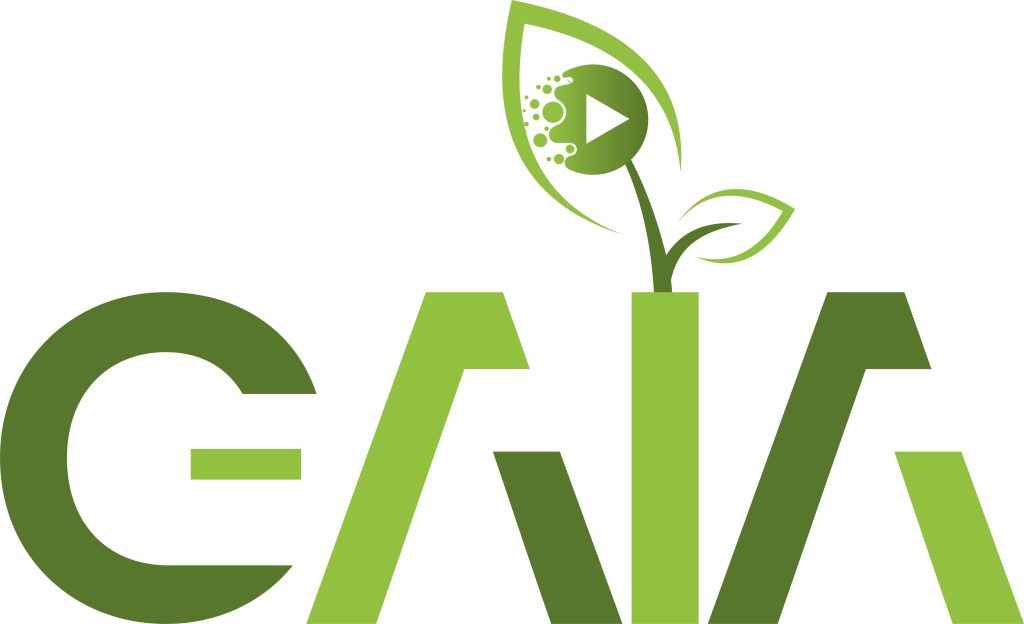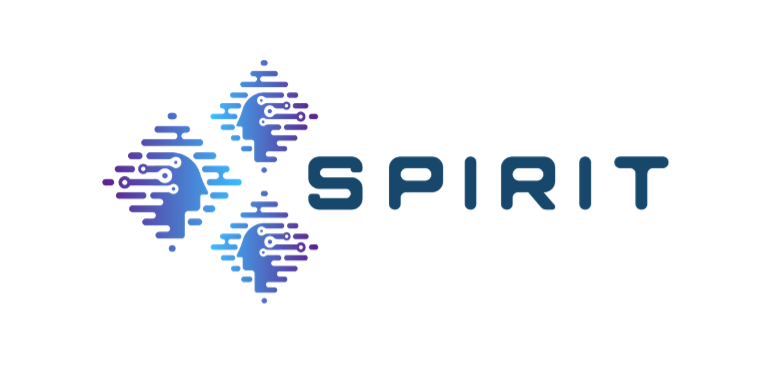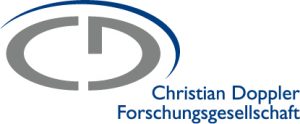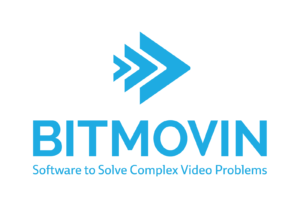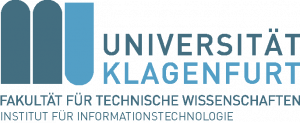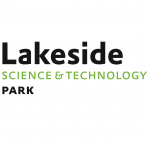List of confirmed speakers below. Further speakers to be added…
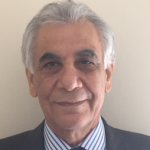 Mohammad Ghanbari (IEEE M’78–SM’97–F’01–LF’14) is an Emeritus Professor at the School of Computer Science and Electronic Engineering, University of Essex, U.K. He has authored or co-authored nine books, and has registered for 13 international patents and authored over 700 technical papers on various aspects of video networking, many of which have had fundamental influences in this field. These include video/image compression, layered/scalable video coding, video over networks, video transcoding, motion estimation, and video quality metrics. He is internationally best known for pioneering work on layered video coding, for which he received the IEEE Fellowship in 2001 and was promoted as an IEEE Life Fellow in 2014. His book Video Coding: An Introduction to Standard Codecs (IET Press, 1999) received the Rayleigh Prize as the Best Book Of The Year 2000 by IET.
Mohammad Ghanbari (IEEE M’78–SM’97–F’01–LF’14) is an Emeritus Professor at the School of Computer Science and Electronic Engineering, University of Essex, U.K. He has authored or co-authored nine books, and has registered for 13 international patents and authored over 700 technical papers on various aspects of video networking, many of which have had fundamental influences in this field. These include video/image compression, layered/scalable video coding, video over networks, video transcoding, motion estimation, and video quality metrics. He is internationally best known for pioneering work on layered video coding, for which he received the IEEE Fellowship in 2001 and was promoted as an IEEE Life Fellow in 2014. His book Video Coding: An Introduction to Standard Codecs (IET Press, 1999) received the Rayleigh Prize as the Best Book Of The Year 2000 by IET.
 Marta Mrak (IEEE SM’13) received the Dipl.Ing. and M.Sc. degrees in electronics engineering from the University of Zagreb, Croatia, and the Ph.D. degree from the Queen Mary University of London, U.K. She was a Post-Doctoral Researcher with the University of Surrey, U.K., and the Queen Mary University of London. She joined the Research and Development Department, BBC, in 2010, where she is currently a Lead Research and Development Engineer on video compression research projects. She is coordinating Horizon 2020 Innovation Action COGNITUS, while also acting as a Supervisor in Marie Curie ITN ProVision. She was involved in several projects funded by the European Commission and the U.K. research and innovation funds (EPSRC and Innovate U.K.). She has co-authored over 100 papers and co-edited two books. She was involved in standardization activities, such as the H.265/HEVC development. She has been a member of committees of several IEEE conferences and workshops, and organized numerous special sessions and special issues in journals. She is an elected member of the IEEE Signal Processing Society, the Multimedia Signal Processing Technical Committee, the IEEE Circuits and Systems Society, and the Multimedia Systems and Applications Technical Committee. She is also acting as an Area Editor of the Signal Processing: Image Communication journal.
Marta Mrak (IEEE SM’13) received the Dipl.Ing. and M.Sc. degrees in electronics engineering from the University of Zagreb, Croatia, and the Ph.D. degree from the Queen Mary University of London, U.K. She was a Post-Doctoral Researcher with the University of Surrey, U.K., and the Queen Mary University of London. She joined the Research and Development Department, BBC, in 2010, where she is currently a Lead Research and Development Engineer on video compression research projects. She is coordinating Horizon 2020 Innovation Action COGNITUS, while also acting as a Supervisor in Marie Curie ITN ProVision. She was involved in several projects funded by the European Commission and the U.K. research and innovation funds (EPSRC and Innovate U.K.). She has co-authored over 100 papers and co-edited two books. She was involved in standardization activities, such as the H.265/HEVC development. She has been a member of committees of several IEEE conferences and workshops, and organized numerous special sessions and special issues in journals. She is an elected member of the IEEE Signal Processing Society, the Multimedia Signal Processing Technical Committee, the IEEE Circuits and Systems Society, and the Multimedia Systems and Applications Technical Committee. She is also acting as an Area Editor of the Signal Processing: Image Communication journal.
 Mathias Wien received the Diploma and Dr.-Ing. degrees from Rheinisch-Westfälische Technische Hochschule Aachen (RWTH Aachen University), Aachen, Germany, in 1997 and 2004, respectively. In 2018, he achieved the status of the habilitation, which makes him an Independent Scientist in the field of visual media communication. He was with Institut für Nachrichtentechnik, RWTH Aachen University (Head: Prof. J.-R. Ohm) as a Researcher, from 1997 to 2006, and as a Senior Researcher and the Head of Administration from 2006 to 2018. Since 2018, he has been with Lehrstuhl für Bildverarbeitung, RWTH Aachen University (Head: Prof. D. Merhof) as a Senior Researcher, the Leader of the Visual Media Communication Group, and the Head of Administration. His research interests include image and video processing, immersive, space-frequency adaptive and scalable video compression, and robust video transmission. He has been an Active Contributor to VVC, HEVC, and H.264/AVC. He has participated and contributed ITU-T VCEG, ISO/IEC MPEG, the Joint Video Team, the Joint Collaborative Team on Video Coding, and the Joint Video Experts Team of VCEG and ISO/IEC MPEG. He has served as a Co-Editor for the scalability amendment to H.264/AVC. In the aforementioned standardization bodies, he has co-chaired and coordinated several AdHoc groups as well as tool and core experiments. He has published more than 60 scientific articles and conference papers in the area of video coding and has co-authored several patents in this area. He has further authored and co-authored more than 100 standardization documents. He has published the textbook High Efficiency Video Coding: Coding Tools and Specification (Springer), which fully covers Version 1 of HEVC. He is a member of the IEEE Signal Processing Society and the IEEE Circuits and Systems Society. He is a member of the VSPC Technical Committee of the IEEE CAS Society. Since 2018, he has been an Associate Editor of the IEEE Transactions on Circuits and Systems for Video Technology.
Mathias Wien received the Diploma and Dr.-Ing. degrees from Rheinisch-Westfälische Technische Hochschule Aachen (RWTH Aachen University), Aachen, Germany, in 1997 and 2004, respectively. In 2018, he achieved the status of the habilitation, which makes him an Independent Scientist in the field of visual media communication. He was with Institut für Nachrichtentechnik, RWTH Aachen University (Head: Prof. J.-R. Ohm) as a Researcher, from 1997 to 2006, and as a Senior Researcher and the Head of Administration from 2006 to 2018. Since 2018, he has been with Lehrstuhl für Bildverarbeitung, RWTH Aachen University (Head: Prof. D. Merhof) as a Senior Researcher, the Leader of the Visual Media Communication Group, and the Head of Administration. His research interests include image and video processing, immersive, space-frequency adaptive and scalable video compression, and robust video transmission. He has been an Active Contributor to VVC, HEVC, and H.264/AVC. He has participated and contributed ITU-T VCEG, ISO/IEC MPEG, the Joint Video Team, the Joint Collaborative Team on Video Coding, and the Joint Video Experts Team of VCEG and ISO/IEC MPEG. He has served as a Co-Editor for the scalability amendment to H.264/AVC. In the aforementioned standardization bodies, he has co-chaired and coordinated several AdHoc groups as well as tool and core experiments. He has published more than 60 scientific articles and conference papers in the area of video coding and has co-authored several patents in this area. He has further authored and co-authored more than 100 standardization documents. He has published the textbook High Efficiency Video Coding: Coding Tools and Specification (Springer), which fully covers Version 1 of HEVC. He is a member of the IEEE Signal Processing Society and the IEEE Circuits and Systems Society. He is a member of the VSPC Technical Committee of the IEEE CAS Society. Since 2018, he has been an Associate Editor of the IEEE Transactions on Circuits and Systems for Video Technology.
 Lea Skorin-Kapov is Associate Professor at the Faculty of Electrical Engineering and Computing at the University of Zagreb, Croatia, and head of the Multimedia Quality of Experience Research Lab (MUEXlab). Her research interests include Quality of Experience (QoE) modeling of multimedia applications, QoE monitoring of encrypted video traffic, cross-layer negotiation and management of QoS/QoE, and resource allocation and optimization mechanisms. She was previously employed as a senior research engineer and project manager in the Research and Development Center of Ericsson Nikola Tesla, Croatia. She has published over 90 scientific papers, and serves on the editorial boards of IEEE Transactions on Network and Service Management and Springer’s Multimedia Systems journal, and has served as Guest Editor for the IEEE Journal of Selected Topics in Signal Processing, and ACM Transactions on Multimedia Computing, Communications, and Applications.
Lea Skorin-Kapov is Associate Professor at the Faculty of Electrical Engineering and Computing at the University of Zagreb, Croatia, and head of the Multimedia Quality of Experience Research Lab (MUEXlab). Her research interests include Quality of Experience (QoE) modeling of multimedia applications, QoE monitoring of encrypted video traffic, cross-layer negotiation and management of QoS/QoE, and resource allocation and optimization mechanisms. She was previously employed as a senior research engineer and project manager in the Research and Development Center of Ericsson Nikola Tesla, Croatia. She has published over 90 scientific papers, and serves on the editorial boards of IEEE Transactions on Network and Service Management and Springer’s Multimedia Systems journal, and has served as Guest Editor for the IEEE Journal of Selected Topics in Signal Processing, and ACM Transactions on Multimedia Computing, Communications, and Applications.
 Francesca De Simone is a tenure track researcher at the Distributed & Interactive Systems group of the Dutch National Research Institute for Mathematics and Computer Science (CWI), in Amsterdam, the Netherlands. She received the Ph.D. degree in computer and information science from the Swiss Federal Institute of Technology (EPFL), Lausanne, Switzerland, in 2012. After her Ph.D, she worked as a post-doctoral fellow in the Multimedia Signal Processing Group at Institut Mines Telecom ParisTech, France, and as a senior engineer in the cybersecurity department of Kudelski Security, Switzerland. Before joining CWI, from November 2015 to January 2018, she was a post-doctoral fellow at the Signal Processing Laboratory LTS4 of EPFL, funded by a research grant from YouTube. She is a member of the IEEE MMSP Technical Committee and the Qomex Technical Program Committee. She has been and is part of the organising committee of international conferences and workshops, such as ACM Multimedia Systems (MMsys), the International Workshop on Immersive Mixed and Virtual Environment Systems (MMVE 2019), and the International Workshop on Multimedia Alternate Realities (AltMM). She has authored more than 50 scientific publications and regularly serves as TPC member for international conferences and reviewer for IEEE and Elsevier journals. Her research interests include multimedia quality assessment, human visual perception, image and video compression, and streaming technologies.
Francesca De Simone is a tenure track researcher at the Distributed & Interactive Systems group of the Dutch National Research Institute for Mathematics and Computer Science (CWI), in Amsterdam, the Netherlands. She received the Ph.D. degree in computer and information science from the Swiss Federal Institute of Technology (EPFL), Lausanne, Switzerland, in 2012. After her Ph.D, she worked as a post-doctoral fellow in the Multimedia Signal Processing Group at Institut Mines Telecom ParisTech, France, and as a senior engineer in the cybersecurity department of Kudelski Security, Switzerland. Before joining CWI, from November 2015 to January 2018, she was a post-doctoral fellow at the Signal Processing Laboratory LTS4 of EPFL, funded by a research grant from YouTube. She is a member of the IEEE MMSP Technical Committee and the Qomex Technical Program Committee. She has been and is part of the organising committee of international conferences and workshops, such as ACM Multimedia Systems (MMsys), the International Workshop on Immersive Mixed and Virtual Environment Systems (MMVE 2019), and the International Workshop on Multimedia Alternate Realities (AltMM). She has authored more than 50 scientific publications and regularly serves as TPC member for international conferences and reviewer for IEEE and Elsevier journals. Her research interests include multimedia quality assessment, human visual perception, image and video compression, and streaming technologies.
 Lucia D’Acunto received her PhD in 2012 from Delft University of Technology, the Netherlands, with a thesis on video streaming over peer-to-peer networks. She now works as a senior research scientist at TNO, focusing on video distribution and on the impact of future internet architectures (e.g. ICN, SDN and 5G) on it. She has led and is leading various European research projects on these topics, most notably the open call projects from the European Projects TRIANGLE, 5GINFIRE and FLAME. Since 2016, Lucia is an active participant and contributor to the 3GPP SA4 group, which focusses on mobile and 5G standardization for media applications. Lucia also serves in the organizing committees of several international conferences, usually in the roles of program chair or demo chair, and in the program committees. Lucia also regularly advises European operators on network and TV technologies and contributes to 5GPPP and NEM visions on the 5G Media Vertical and pilots. Lucia has published her research in several papers and journals and holds more than 15 patent applications.
Lucia D’Acunto received her PhD in 2012 from Delft University of Technology, the Netherlands, with a thesis on video streaming over peer-to-peer networks. She now works as a senior research scientist at TNO, focusing on video distribution and on the impact of future internet architectures (e.g. ICN, SDN and 5G) on it. She has led and is leading various European research projects on these topics, most notably the open call projects from the European Projects TRIANGLE, 5GINFIRE and FLAME. Since 2016, Lucia is an active participant and contributor to the 3GPP SA4 group, which focusses on mobile and 5G standardization for media applications. Lucia also serves in the organizing committees of several international conferences, usually in the roles of program chair or demo chair, and in the program committees. Lucia also regularly advises European operators on network and TV technologies and contributes to 5GPPP and NEM visions on the 5G Media Vertical and pilots. Lucia has published her research in several papers and journals and holds more than 15 patent applications.
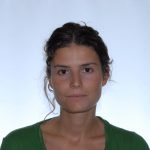 Laura Toni (IEEE S’06–M’09) received the M.S. and Ph.D. degrees, both in electrical engineering, from the University of Bologna, Bologna, Italy, in 2005 and 2009, respectively. In 2007, she was a Visiting Scholar at the University of California at San Diego (UCSD), San Diego, CA, USA, and since 2009, she has been a frequent visitor to the UCSD, working on media coding and streaming technologies. Between 2009 and 2011, she was with the Tele-Robotics and Application Department, Italian Institute of Technology, investigating wireless sensor networks for robotics applications. In 2012, she was a Postdoctoral Fellow at UCSD, and between 2013 and 2016, she was a Postdoctoral Fellow in the Signal Processing Laboratory (LTS4) at École Polytechnique Fédérale de Lausanne, Lausanne, Switzerland. Since July 2016, she has been a Lecturer in the Electronic and Electrical Engineering Department, University College London (UCL), U.K. Her research mainly involves interactive multimedia systems, decision-making strategies under uncertainty, large-scale signal processing, and communications. She received the UCL Future Leadership Award in 2016, the ACM Best 10% Paper Award in 2013, and the IEEE/IFIP Best Paper Award in 2012.
Laura Toni (IEEE S’06–M’09) received the M.S. and Ph.D. degrees, both in electrical engineering, from the University of Bologna, Bologna, Italy, in 2005 and 2009, respectively. In 2007, she was a Visiting Scholar at the University of California at San Diego (UCSD), San Diego, CA, USA, and since 2009, she has been a frequent visitor to the UCSD, working on media coding and streaming technologies. Between 2009 and 2011, she was with the Tele-Robotics and Application Department, Italian Institute of Technology, investigating wireless sensor networks for robotics applications. In 2012, she was a Postdoctoral Fellow at UCSD, and between 2013 and 2016, she was a Postdoctoral Fellow in the Signal Processing Laboratory (LTS4) at École Polytechnique Fédérale de Lausanne, Lausanne, Switzerland. Since July 2016, she has been a Lecturer in the Electronic and Electrical Engineering Department, University College London (UCL), U.K. Her research mainly involves interactive multimedia systems, decision-making strategies under uncertainty, large-scale signal processing, and communications. She received the UCL Future Leadership Award in 2016, the ACM Best 10% Paper Award in 2013, and the IEEE/IFIP Best Paper Award in 2012.
 Ali C. Begen (IEEE S’98–M’07–SM’12) Ali C. Begen is currently a computer science professor at Ozyegin University and a technical consultant in the Video Architecture, Strategy and Technology group at Comcast. Previously, he was a research and development engineer at Cisco. Begen received his PhD in electrical and computer engineering from Georgia Tech in 2006. To date he received a number of academic and industry awards and was granted 30+ US patents. More details are at http://ali.begen.net.
Ali C. Begen (IEEE S’98–M’07–SM’12) Ali C. Begen is currently a computer science professor at Ozyegin University and a technical consultant in the Video Architecture, Strategy and Technology group at Comcast. Previously, he was a research and development engineer at Cisco. Begen received his PhD in electrical and computer engineering from Georgia Tech in 2006. To date he received a number of academic and industry awards and was granted 30+ US patents. More details are at http://ali.begen.net.
 Johanna Pirker is researcher at the Institute of Interactive Systems and Data Science at Graz University of Technology (TUG). She finished her Master’s Thesis during a research visit at Massachusetts Institute of Technology (MIT) working on collaborative virtual world environments. In 2017, she finished her doctoral dissertation in computer science on motivational environments under the supervision of Christian Gütl (TUG) and John Belcher (MIT). She specialized in games and environments that engage users to learn, train, and work together through motivating tasks. She has long-lasting experience in game design and development, as well as virtual world development and has worked in the video game industry at Electronic Arts. Her research interests include AI, data analysis, immersive environments (VR), games research, gamification strategies, HCI, e-learning, CSE, and IR. She has authored and presented numerous publications in her field and lectured at universities such as Harvard, Berlin Humboldt Universität, or the University of Göttingen. Johanna was listed on the Forbes 30 Under 30 list of science professionals.
Johanna Pirker is researcher at the Institute of Interactive Systems and Data Science at Graz University of Technology (TUG). She finished her Master’s Thesis during a research visit at Massachusetts Institute of Technology (MIT) working on collaborative virtual world environments. In 2017, she finished her doctoral dissertation in computer science on motivational environments under the supervision of Christian Gütl (TUG) and John Belcher (MIT). She specialized in games and environments that engage users to learn, train, and work together through motivating tasks. She has long-lasting experience in game design and development, as well as virtual world development and has worked in the video game industry at Electronic Arts. Her research interests include AI, data analysis, immersive environments (VR), games research, gamification strategies, HCI, e-learning, CSE, and IR. She has authored and presented numerous publications in her field and lectured at universities such as Harvard, Berlin Humboldt Universität, or the University of Göttingen. Johanna was listed on the Forbes 30 Under 30 list of science professionals.
 Mathias Lux is Associate Professor at the Institute for Information Technology (ITEC) at Klagenfurt University. He is working on user intentions in multimedia retrieval and production, semantics in social multimedia systems, and interactive multimedia in the domain of video games. In his scientific career he has (co-) authored more than 100 scientific publications, serves in multiple program committees and as a reviewer of international conferences, journals and magazines on a regular basis, and has (co-)organized multiple scientific events. Mathias Lux is also well known for the development of the award winning and popular open source tools Caliph & Emir and LIRE for multimedia information retrieval. He has integrated image indexing and retrieval features in the popular Apache Solr search server and his system is for instance powering the WIPO Global Brand Database. At Klagenfurt University he has established a lively community of game developers and enthusiasts who meet at regular events and game jams. Dr. Mathias Lux received his M.S. in Mathematics 2004, his Ph.D. in Telematics 2006 from Graz University of Technology, both with distinction, and his Habilitation (venia docendi) from Klagenfurt University in 2013. He worked in industry on web-based applications, then as a junior researcher at a research center for knowledge-based applications. He was a research and teaching assistant at the Knowledge Management Institute (KMI) of Graz University of Technology and in 2006 he started working in a post doc position at Klagenfurt University, at the Institute for Information Technology. Currently he is vice chairman of the senate of Klagenfurt University in the second term and chairman of the curriculum committee for the master program Game Studies and Engineering.
Mathias Lux is Associate Professor at the Institute for Information Technology (ITEC) at Klagenfurt University. He is working on user intentions in multimedia retrieval and production, semantics in social multimedia systems, and interactive multimedia in the domain of video games. In his scientific career he has (co-) authored more than 100 scientific publications, serves in multiple program committees and as a reviewer of international conferences, journals and magazines on a regular basis, and has (co-)organized multiple scientific events. Mathias Lux is also well known for the development of the award winning and popular open source tools Caliph & Emir and LIRE for multimedia information retrieval. He has integrated image indexing and retrieval features in the popular Apache Solr search server and his system is for instance powering the WIPO Global Brand Database. At Klagenfurt University he has established a lively community of game developers and enthusiasts who meet at regular events and game jams. Dr. Mathias Lux received his M.S. in Mathematics 2004, his Ph.D. in Telematics 2006 from Graz University of Technology, both with distinction, and his Habilitation (venia docendi) from Klagenfurt University in 2013. He worked in industry on web-based applications, then as a junior researcher at a research center for knowledge-based applications. He was a research and teaching assistant at the Knowledge Management Institute (KMI) of Graz University of Technology and in 2006 he started working in a post doc position at Klagenfurt University, at the Institute for Information Technology. Currently he is vice chairman of the senate of Klagenfurt University in the second term and chairman of the curriculum committee for the master program Game Studies and Engineering.
 Klaus Schöffmann is an Associate Professor at the Institute of Information Technology (ITEC) at Klagenfurt University, Austria, where he received his habilitation (venia docendi) in Computer Science in 2015. He holds a PhD and a MSc in Computer Science. His research focuses on video content analysis (in particular of medical/surgery videos), multimedia retrieval, interactive multimedia, and deep learning. He has co-authored more than 120 publications on various topics in multimedia, inclusive of more than 30 on different aspects of medical video analysis. He has co-organized several international conferences, workshops, and special sessions in the field of multimedia. Klaus Schoeffmann is founder of the Video Browser Showdown (VBS) – an international annual live evaluation competition of interactive video search systems, started in 2012. He is a member of the IEEE and the ACM, and a regular reviewer for international conferences and journals in the field of multimedia. Klaus Schoeffmann teaches various courses in computer science, including app development, multimedia apps, video analysis & retrieval, and distributed multimedia systems.
Klaus Schöffmann is an Associate Professor at the Institute of Information Technology (ITEC) at Klagenfurt University, Austria, where he received his habilitation (venia docendi) in Computer Science in 2015. He holds a PhD and a MSc in Computer Science. His research focuses on video content analysis (in particular of medical/surgery videos), multimedia retrieval, interactive multimedia, and deep learning. He has co-authored more than 120 publications on various topics in multimedia, inclusive of more than 30 on different aspects of medical video analysis. He has co-organized several international conferences, workshops, and special sessions in the field of multimedia. Klaus Schoeffmann is founder of the Video Browser Showdown (VBS) – an international annual live evaluation competition of interactive video search systems, started in 2012. He is a member of the IEEE and the ACM, and a regular reviewer for international conferences and journals in the field of multimedia. Klaus Schoeffmann teaches various courses in computer science, including app development, multimedia apps, video analysis & retrieval, and distributed multimedia systems.



